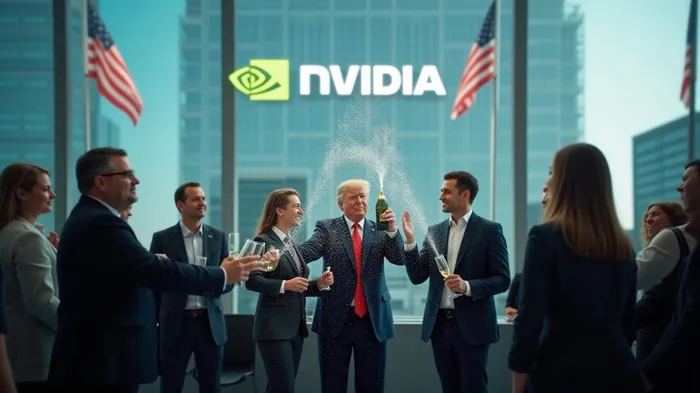Trump Administration Lifts AI Chip Export Restrictions Boosting Nvidia's Market Reach
The Trump administration has announced plans to lift restrictions on the export of artificial intelligence (AI) chips, a move that could significantly reshape the semiconductor trade landscape. This decision comes as a reversal of the Biden-era curbs, which were implemented to curb China's technological advancements. The restrictions, set to take effect on May 15, aimed to further limit the export of AI chips and related technologies. The Trump administration's decision to rescind these restrictions is part of a broader effort to revise semiconductor trade policies.
Nvidia, a leading player in AI chip design, has been significantly impacted by these export restrictions. The U.S. government has imposed stringent controls on the export of Nvidia's A100 and H100 chips to China, highlighting the targeted nature of these regulations. The lifting of these restrictions could provide a substantial boost to Nvidia's role in the semiconductor trade, as it would allow the company to expand its market reach and increase its sales in regions previously restricted by the export controls.
The decision to lift AI chip restrictions is expected to have far-reaching implications for the semiconductor industry. By easing export controls, the Trump administration aims to foster innovation and competition in the AI chip market. This move could also encourage other companies to invest in AI chip technology, potentially leading to advancements in the field. However, it remains to be seen how this decision will impact the broader geopolitical dynamics between the U.S. and China, as well as the global semiconductor supply chain.
The lifting of AI chip restrictions is also likely to have a positive impact on Nvidia's business operations. With the ability to export its AI chips to a wider range of markets, NvidiaNVDA-- could see an increase in demand for its products. This could translate into higher revenues and profits for the company, as well as potential growth opportunities in new markets. Additionally, the easing of export controls could allow Nvidia to focus more on research and development, further enhancing its competitive edge in the AI chip market.
In summary, the Trump administration's decision to lift AI chip restrictions is a significant development in the semiconductor trade landscape. This move is expected to boost Nvidia's role in the industry, as well as foster innovation and competition in the AI chip market. However, the long-term implications of this decision remain to be seen, and it will be important to monitor how it impacts the broader geopolitical dynamics and global semiconductor supply chain.

Comprender con rapidez la historia y el antecedente de varias monedas muy conocidas
Latest Articles
Stay ahead of the market.
Get curated U.S. market news, insights and key dates delivered to your inbox.

Comments
No comments yet